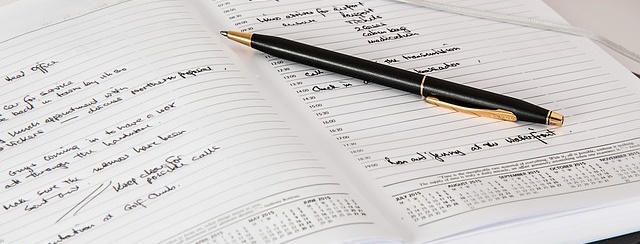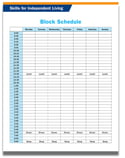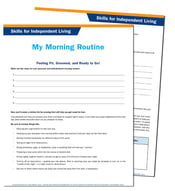
- Featured, Blog, transition, Parents
What Does Transitioning Home for Summer Break Look Like for CIP Students?

Transitioning home for breaks can be a difficult process for our students. Although they are excited about the time off and seeing their families, they lose a lot of the structure and support that has helped them to be successful throughout the year. We try to make this transition as easy as possible at each of our CIP centers, and there are ways you can help with this process as well.
Our job here at CIP is to send your student home prepared, and with a plan. To prepare them, our Advisors will work with them on overall planning for the break. This would include planning upcoming doctor appointments, banking and budgeting, looking at possible jobs or community service and even suggesting they contact friends before returning home. In the Life Skills Department we will make sure they are packed and have the EF checklists that are effective for them. Our plan consists of our transition recommendations.
In the sample recommendations provided below you will find general suggestions that all of the students can use. Each of our students go home with a recommendation plan with specific areas they need to work on and ideas for activities to keep them in the right mindset over the break. With these tools the students should be able to make a seamless transition back to the center for the fall term.
Sample Transition Plan
Summer Break Recommendations
Executive Functioning:
- Maintain a routine.
- Follow a plan set for each day with specific times (see block schedule below) to include leisure as well as obligatory activities. A plan will reduce anxiety and increase confidence.
- Check off tasks throughout the day. This action will also facilitate communication as a result of being able to see what the student is thinking.
- Wake up at the same time every day
- Shower/shave daily – continue the routine (a missed day is detrimental)
- Get dressed for the day
- Medication
- Brush teeth/hair
- Eat
Social Thinking:
- Plan time to see family and friends. As much as possible, use face-to-face contact to practice the ability to read body language and facial expressions.
- Be sure to ask questions of others to show that you are interested in them.
- Limit down time to avoid isolation.
- Try a few new activities or foods to practice flexibility and to build your ability to converse about a wider variety of topics.
Life Skills:
- Maintain your current routine even when you get home.
- Continue with your EF tasks, complete your hygiene and cook for your family.
- Don’t forget to get out of the house and be active.
Outdoors:
- Plan on your schedule to get outside for at least 30 minutes each day.
Wellness:
- Continue to take your medications at the same time every day per the alarms you have set on your phone.
Evening Routine:
“Check for evidence of completion of each task” – Asking is not enough.
- Establish what is needed for the next day (check block schedule)
- Set up clothing/materials needed by nightstand
- Check and complete room cleanliness form
- Get dressed for the night
- Medication
- Brush teeth
Plan for all of the above to be completed before engaging in leisure activities such as gaming, web surfing, reading, napping, etc.
 It may also be a good idea to sit down with your student and plan out the week using a schedule similar to this one. Your students are used to following a schedule every day, it provides structure and allows them to plan for what comes next. Feel free to download this sheet or create one that works for you and your student.
It may also be a good idea to sit down with your student and plan out the week using a schedule similar to this one. Your students are used to following a schedule every day, it provides structure and allows them to plan for what comes next. Feel free to download this sheet or create one that works for you and your student.
Student Responsibilities
For these breaks to be successful, CIP students will need to continue working in each of CIP’s core competencies. For life skills, students should continue to follow their routines, maintain hygiene, wake up at a reasonable time each day, clean up after themselves and use their new cooking skills. In academics, each student will have specific instructions in their recommendation plan if academics applies to them. Class and study times over the break should be structured and scheduled ahead of time just as they are here at the center. Our Career Coordinators work very hard to find internships for all of our students each semester. It may be possible to find volunteer opportunities related to their internships to keep their work skills sharp over the break. Volunteer opportunities and time with friends will help students sustain the social thinking skills that they have developed throughout the semester. Finally, it will be important for your students to keep their wellness in mind throughout the break. Finding local gyms, going on walks and finding physical activities is good way to keep in shape during their time away from the center.
What else can you do to help?
Establishing rules and expectations will be very important so that your student will have some of the structure that was so helpful for them here. Some of these expectations should include cleaning up after themselves, assisting in grocery shopping or shopping on their own, assisting with meals or cooking independently and maintaining appropriate hygiene. Help them stay busy while they are at home by finding volunteer opportunities related to their internships. Plan social activities with people your students are already familiar with like family and friends. The most important thing you can do is to remember that your student was working toward independence here and should continue this while on break with you.
 Here is a printout parents can use to keep their students on track – the Morning and Evening Routine sheet from our Autism and Learning Differences Teaching Toolkit.
Here is a printout parents can use to keep their students on track – the Morning and Evening Routine sheet from our Autism and Learning Differences Teaching Toolkit.
About the Author: Anthony Milla
Anthony Milla is the Lead Life Skills Coordinator at CIP Brevard. Before joining CIP, he attended Ohio State University and studied psychology before taking a position at a specialized residential program where he was a floor supervisor, hiring manager, and physical management and verbal de-escalation trainer. Currently, Anthony also leads CIP's annual Global Engagement Trip in which he has the opportunity to travel the globe with our CIP students.
Related Articles
- CIP Announces the 2024 Winners of the Summer@CIP Video Contest
- Home for the Holidays: Tips for Healthy Transitions for Individuals with Learning Differences
- Berkshire Eagle: Helping students with autism navigate the transition to independence
- The Impact of Transitions on Neurodivergent Young Adults
- Autism In Real Life, An Interview with CIP President Dan McManmon